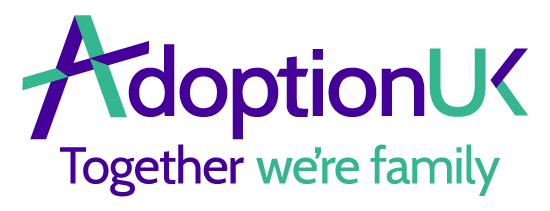Edited 17/02/2021
Adoptee Mental Health Research
Karolinamoon
November 19, 2018 18:43
I'm not an adopter, and have no desire to adopt. I am looking for some insight or information into difficulties experienced by adoptees growing up, as I am doing some research on this. I come from a different side of the 'adoption triad'. My full birth brother was adopted at birth (forced adoption), early 1970s. My parents married 4 years after his adoption, and never stopped looking for him. When they eventually found him and were reunited in 2001, he was very unstable (unbeknown to us and social workers, who had been assured that he was a fine young man). He was introduced to us all, and we were thrown into a world of turmoil and pain, as he became quite bitter towards us, and sought some kind of revenge for being the one who was adopted (he had 3 full birth sisters...and indeed a full birth family all along, so I do understand how hard this must have been) Despite this, we managed t forge a friendship with him, for 17 years. Five months ago, he was killed in a m otorbike accident. He had problems with alcohol and drugs, and was very impulsive. I understand adoption is different now, however, I am looking for some information regarding how an adoptee and their adoptive parents are supported now? I know other adopted children who have grown into stable adults with little or no problem. Why are some adopted children effected so badly by adoptions, and others not so much? Any insight from adoptive parents would be greatly appreciated!
Larsti
November 19, 2018 20:16
I am sorry to hear about your brother's death. I have pondered this question myself and I think the short answer is that there is no answer. But a few thoughts. Have you come across a book called The Primal Wound by Nancy Verrier I think you would find it interesting. https://blackwells.co.uk/bookshop/product/9780963648006?gC=5a105e8b&gclid=EAIaIQobChMI_6PZnZ_h3gIVDRHTCh2TwQqcEAQYAiABEgJiO_D_BwE Also BAAF (now CoramBAAF) used to have a library. I would hope Coram took over the running of the library and if so may be able to point you in the direction of any research there may be. https://corambaaf.org.uk/ Lastly social workers sometimes talk about resilience and factors which help a child to be more resilient. I think that sometimes resilience (which is what I think you are asking about) is part of a person's personality and not necessarily to do with their circumstances. It is possible your brother could have ended up with the same problems if he hadn't been adopted. Could he have had undiagnosed and untreated ADHD? (in an era when not much was known about it, compared to today). I have a friend who is a GP, a pillar of the community. Her brother on the other hand had mental health problems. Last I heard of him he had torched a car and been arrested. They weren't adopted but their father died when they were teenagers. Who knows why one thrived and the other didn't. And again, maybe her brother was always going to have those problems regardless of the tragedy in the family. Best wishes Larsti
Edited 17/02/2021
Larsti
November 19, 2018 20:25
This looks interesting (haven't read all of it!) http://barefootsocialwork.weebly.com/blog/risk-resilience-and-adoption#
Edited 17/02/2021
Callie
November 20, 2018 12:16
Many adoptees in the past have suffered additional issue of the lack of honesty growing up - maybe not knowing they were adopted, then feeling lied to or let down when they find out - often in teenage years etc? or sometimes there has been a sense of shame or taboo around the adoption if adoptive parents have been secretive? Hence the current practice of lifestory work and focus on being open with the child to help them deminish shame and gain self esteem and a sense of self...
Edited 17/02/2021
Milly
November 20, 2018 13:17
I think Callie makes a good point. I have heard adult adoptees speak and the lack of openess and understanding of the need to know about the birth family featured heavily in what they said. As for mental health. I do think genetics play a huge part as well. My children are not related biologically but come from similar backgrounds - they are opposites in many ways and a lot of that feels like it could well be down to genetics, though it's impossible to know for sure.
Edited 17/02/2021
freddie2
November 20, 2018 13:50
Iâm so sorry to hear of your loss I have two adopted children, who are full siblings, both adopted as young babies. I would say that my oldest is much more vulnerable than her younger sibling. She has severe adhd and anxiety. I donât know why. She did have a more difficult start in life. She was very premature (premature babies are more susceptible to conditions like adhd) and was moved around the care system quite a lot before joining us. Her sibling was full term and only had one foster career before joining us. From day one he was a much more settled baby - fed well and content. Genetics definitely play a big part, but I do think that In our case our daughterâs start in life has also had a big impact on her too Xx
Edited 17/02/2021
Karolinamoon
November 20, 2018 14:51
Thanks to everyone who has commented so far. I dont think I will ever really know the truth of his adoption and what his life was like growing up. His adoptive family arent very open towards us, and I dont feel comfortable asking questions, especially in light of recent tragic events. I believe he may have had some undiagnosed mental health issue such as bipolar or adhd. His start in life was traumatic, even before he was born, my mother was taken to an abortionist against her will and there were three failed attempted abortions. He was also taken away straight after birth, so did not have any chance to bond with his Mother and vise versa. Im sure all that will have an adverse effect on a person. Aside from that, his upbringing with adoptove parents I dont think was a happy one. Yes, he was spoiled and got everything he wanted and more....but I dont see that as an entirely positive thing. He left his adoptive parents home when he was 14 and lived with a friend. When we reunited, he became quite bitter and vengeful...and I can only assume this was in part the result of an unhappy childhood.
Edited 17/02/2021
Donatella
November 20, 2018 15:49
I would say itâs not adoption in itself that causes the difficulties .. invariably itâs what happened before they were adopted. Your last post explains in more detail the background to his removal and what happened in utero. Iâm in no doubt that that would have affected him - itâs not just about what happens to a child once itâs born. In utero experiences play a huge part. Stress in pregnancy means babies are born with higher cortisol levels than other children so whereas it might take a hugely stressful event to trigger a meltdown in most people, for someone with raised cortisol levels it can take very little. He was the product of a very traumatic pregnancy. How much of this did he know? Lots of mental illnesses have a genetic element so thatâs also something to bear in mind. I would hope that he received some appropriate counselling and therapeutic lifestory work before you all found each other. I hope he was appropriately supported. Unfortunately - imo - programmes like Long Lost Families donât always portray the realities of adoption or how hard it can be for adoptees and their families. For the most part the focus is on the birth family ... the adoptive family just seem to be bystanders in the whole process. You might find it interesting to google Bruce Perry and his neurosequential model. Also Maslowâs Hierachy of Needs. Sometimes adoptees have an unfillable hole that all the love in the world canât fill.
Edited 17/02/2021
Larsti
November 20, 2018 15:59
That is a good point made by Callie. I know someone (now in his 60s) who all his life had an irrational fear of being abandoned. He must have suspected he had been adopted because he asked his mother more than once and even when she was dying she denied he was adopted. After she died he discovered he had indeed been adopted. I am so glad we have moved on from those days when adoption was often a secret. Having said that I was surprised to be asked by a CAMHS consultant recently 'Does he know he's adopted?' (mind you he wasn't from this country so perhaps that explains his ignorance of adoption in 21st century Britain!) I agree with you Karolinamoon that those in utero experiences would have had an effect. Cortisol (a stress hormone I believe) affects the foetus. https://www.theguardian.com/science/2007/may/31/childrensservices.medicineandhealth
Edited 17/02/2021
Larsti
November 20, 2018 16:02
I was slow posting my comment as my son had just come in and told me about his bad day at school :-( Great minds think alike Donatella!
Edited 17/02/2021
Karolinamoon
November 20, 2018 16:09
Yes I agree, the trauma experienced before birth has alot to do with his problems during his life. He did not know about the attempted abortions....he died not knowing. It is only something that my Mother has felt able to share recently since his death. I understand that adoptive families are sometimes pushed to the sidelines, however, I think our case is quite different from the mainstream type adoptions and reunions of today. The adoption in my brothers case, should never have happened. It has caused generations to be lost and suffering that has spreak through generations since.
Edited 17/02/2021
Larsti
November 20, 2018 17:57
I hope your mother and other members of the family including you are able to have some counselling. This organisation may be able to help https://www.pac-uk.org/
Edited 17/02/2021
safia
November 21, 2018 11:41
The in utero experiences would have had an impact on him - including the huge amout of stress your Mum must have been under - then removal at birth - and in those days it was often thought best to hide things from the children themselves - with everybody else knowing except them - so growing up in an atmosphere of dishonesty. The Nancy Verrier book mentioned above is very good regarding this sort of situation. These days most adoptions in the UK are of children from the care system - who have suffered abuse or neglect or been born to parents with drug, alcohol or mental health problems - so very different and as well as the early trauma there are often inherited mental health problems or learning difficulties. Attachment problems (from the disruption of the naturally developing relationship with the baby and mother) also play a part and that is something else worth researching for you. I would also agree with the benefits of counselling - preferably with someone familiar with adoption or attachment problems - there are organisations that specialise in this for adult adoptees who could maybe help - or finding somone local to you with the right sort of training or interests / experience
Edited 17/02/2021
Archived
This topic is archived. New posts are not allowed.

